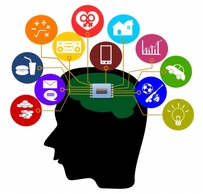
At an Atlanta Regional Commission workshop this week, keynote speaker Simran Noor gave a demonstration that still has me thinking. It should make you think too.
Speaking about racial equity to a room of community planning professionals, the Center for Social Inclusion’s Vice President of Policy & Programs gave audience members a lesson in mind reading. I can teach you too, but let me prove it first by having you follow these steps:
- Think of a number from 1 to 10.
- Multiply that number by 9.
- If the number is a 2-digit number, add the digits together.
- Now subtract 5.
- Determine which letter of the alphabet corresponds to the number you ended up with (example: 1=a, 2=b, 3=c, etc.).
- Think of a country that starts with that letter.
- Remember the last letter of the name of that country.
- Think of the name of an animal that starts with that letter.
- Remember the last letter in the name of that animal.
- Think of the name of a fruit that starts with that letter.
If necessary, write it down as you go.
Now the mind reading…
Have you been feeding oranges to kangaroos in Denmark? If not, you answered different from ~98% of people. In our conference room, dozens of raised hands, shaking heads, and puzzled looks proved it.
Part of the trick is simple math: any number from 1-10 multiplied by 9 yields a result (09, 18, 27, etc.) whose digits sum to 9. Subtract 5 and you always get 4. So, everyone has “D” to start.
From there, the options expanded in theory. Yet, consistently, the vast majority of people make the same choices.
Denmark comes to mind over Democratic Republic of the Congo, Djibouti, Dominica, Dominican Republic, or Democratic People’s Republic of Korea (North Korea). Kangaroo hops up far more than kiwi, koala, kestrel, killdeer, Komodo dragon, kookaburra, kingsnake, katydid, etc. And orange is a foregone conclusion. Depending on what you count as an animal and a fruit, there are hundreds (if not thousands) of possible combinations. Yet, people arrive over and over at only one conclusion.
It was a perfect illustration for Noor’s point about preconceived notions and unconscious bias limiting thinking and restricting outcomes in a group, organization, or society -- especially as it relates to race. It also left me pondering the critical importance of encouraging divergent thinking at each step when analyzing any situation or deciding a course of action.
Race, gender, age, birthplace, religion, political affiliation, accent, dress, appearance, and so on… Each triggers at least some bias or predisposition in humans, no matter how much we train ourselves to expand our thinking. The effect is greatest when forced (or choosing) to go with the first thing that pops into our head.
What if I’d asked you to list all countries starting with your letter (D) and then select one? Or to identify all animals with names that begin with K before choosing? The outcomes would have been different and definitely more diverse.
It’s an important lesson to take to heart in our civic, professional, and personal lives. It's hard to "think outside the box" when we're totally unaware the box exists.
The next time someone asks you for a quick answer, think twice.
Image courtesy of bandrat at FreeDigitalPhotos.net.

 RSS Feed
RSS Feed